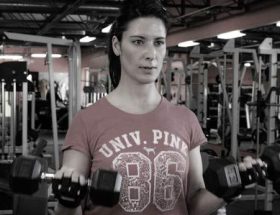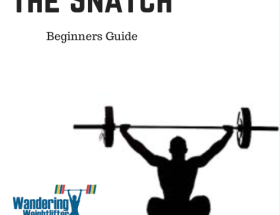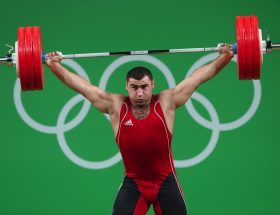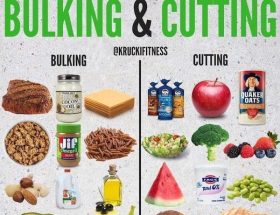Powerlifting is a demanding sport that requires strength, endurance, and proper nutrition to excel. Whether you are a beginner or an experienced lifter, understanding the importance of fueling your body correctly can make a significant difference in your performance and overall progress. In this article, we will explore the key components of powerlifting nutrition and provide valuable insights into optimizing your diet for maximum gains.
The Power of Macros
Macronutrients, often referred to as “macros,” are the building blocks of a well-rounded powerlifting diet. They consist of carbohydrates, proteins, and fats, each playing a vital role in providing the fuel and nutrients needed to power through intense training sessions and recover effectively.
Carbohydrates: As the primary source of energy for the body, carbohydrates should form a considerable portion of your powerlifting diet. Complex carbohydrates like whole grains, sweet potatoes, and brown rice provide sustained energy levels and help prevent fatigue during long workouts. Aim to consume around 40-50% of your daily calorie intake from carbs.
Proteins: Protein is essential for muscle growth, repair, and recovery. Aim to consume 1 to 1.5 grams of protein per pound of body weight each day. Good sources of protein include lean meats, poultry, fish, eggs, dairy products, and plant-based options like tofu and legumes.
Fats: Healthy fats are crucial for hormone production, joint health, and overall well-being. Opt for sources like avocados, nuts, seeds, olive oil, and fatty fish. Aim to consume around 20-30% of your daily calorie intake from healthy fats.
Timing is Everything
In powerlifting, timing your meals and snacks strategically can have a significant impact on your performance and recovery.
Pre-workout: Fueling up before a training session is crucial to ensure optimal performance. Consuming a balanced meal rich in carbohydrates and protein about 2-3 hours before your workout can provide sustained energy levels and prevent muscle breakdown during training. Additionally, including some healthy fats can slow down the digestion of carbs, preventing blood sugar spikes and crashes. If you prefer working out on an empty stomach or have a morning training session, a light snack like a banana or a protein shake can still provide the necessary fuel.
Post-workout: After an intense powerlifting session, your body needs to replenish glycogen stores and initiate the muscle recovery process. Consuming a post-workout meal or snack within 30-60 minutes after training is ideal. A combination of fast-digesting carbohydrates and high-quality protein is crucial to kickstart muscle repair and growth. Simple and convenient options include a protein shake with a banana, Greek yogurt with berries, or a chicken breast with sweet potatoes.
Supplemental Support
While a well-balanced diet should be the foundation of your powerlifting nutrition, certain supplements can provide added support to help you meet your nutritional needs and optimize performance.
Protein powder: Whey protein powder is a popular choice among powerlifters due to its high protein content and fast absorption rate. It can be consumed as a shake or added to recipes like pancakes or smoothies for a convenient protein boost.
Creatine: Creatine is a naturally occurring compound that enhances strength, power, and muscle mass. It can be particularly beneficial for powerlifters looking to increase their performance during heavy lifts. Consult with a healthcare professional to determine the appropriate dose and best form of creatine for you.
Omega-3 fatty acids: Omega-3 supplements, typically derived from fish oil, offer numerous health benefits such as reducing inflammation, supporting joint health, and enhancing recovery. They can also be obtained by consuming fatty fish like salmon or through plant-based alternatives like flaxseed oil.
Hydration for Performance
Proper hydration is often overlooked but is a crucial aspect of powerlifting nutrition. Dehydration can lead to decreased strength, endurance, and overall performance. Aim to consume at least 8-10 cups (64-80 ounces) of water per day, increasing this amount on training days or when you are in a hot and humid climate. Try to avoid excessive intake of caffeine, alcohol, and sugary drinks, as they can dehydrate your body.
The Importance of Recovery
In addition to fueling your body appropriately, allowing for adequate recovery is vital for sustaining progress and preventing injuries. Make sure to prioritize sleep, as it is during this time that your body repairs and rebuilds muscle tissue. Aim for 7-9 hours of quality sleep each night.
Incorporating rest days into your training routine is also essential. It is during these rest periods that your muscles adapt and grow stronger. Listen to your body and give it the time it needs to recover and recharge.
Conclusion
Powerlifting nutrition is a comprehensive approach that ensures your body is adequately fueled to perform at its best. By understanding the importance of macronutrients, timing your meals, incorporating supplements when needed, staying hydrated, and allowing for proper recovery, you can optimize your powerlifting journey and fuel your gains like never before. Remember, consistency is key, and a well-rounded nutritional plan combined with hard work and dedication will lead to the strength gains you strive for.









